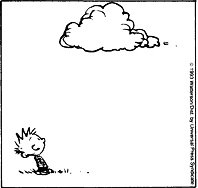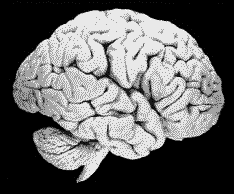At the board again
Old Testament: gospels, apocalypse, epistles
New Testament: about one personality
Kerygmatic- New Testament- evolution of prophesy
Mark- earliest, shortest, uses the word "immediately" 42 times, urgent
Paratectic- raises everything to the same level like with the use of the word "and"
Mark 13: When will the 2nd coming be, and what will the signs be?
--two types of answers: literal and realized
literal eschatology: the world will end
realized eschatology: the kingdom of God is right here, right now

On eschatology... I'd have to say that I've gotta go with the literal theory. I would kind of hope that is what will happen. All in all, I'd say that a lot of aspects of the world are getting progressively worse, and somehow I don't foresee much change in that. It'd probably be a good thing if we all got blown up (or to a lesser extent, saw the end of the world as we know it) before we create our own personal Hell that we would be forced to continue living in. How could that be the kingdom of God?

screed- an argument
Hebrew Bible- what haven't you done (i.e. thou shalt not kill)
New Testament- what have you done (love your enemies)
A gospel is not factual biography- it is kerygmatic testimonial
Mark 13- the little apocalypse
Apocalypse- to remove the veil- a destruction of the way of seeing of the order associated with two things



 from Calvin & Hobbes- Bill Wallace**sidenote- if you have never read Calvin & Hobbes... you need to : ) check it out at:
from Calvin & Hobbes- Bill Wallace**sidenote- if you have never read Calvin & Hobbes... you need to : ) check it out at:





